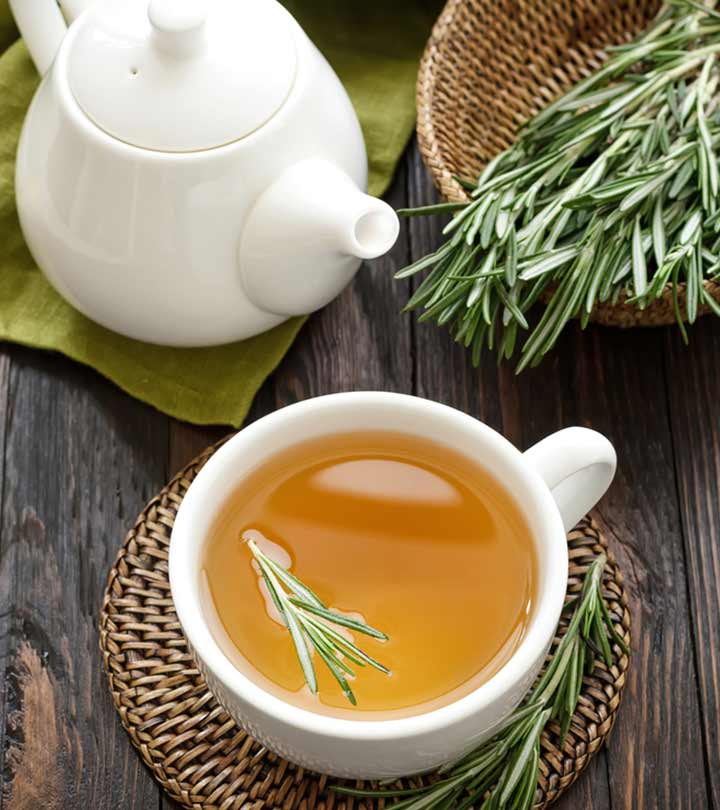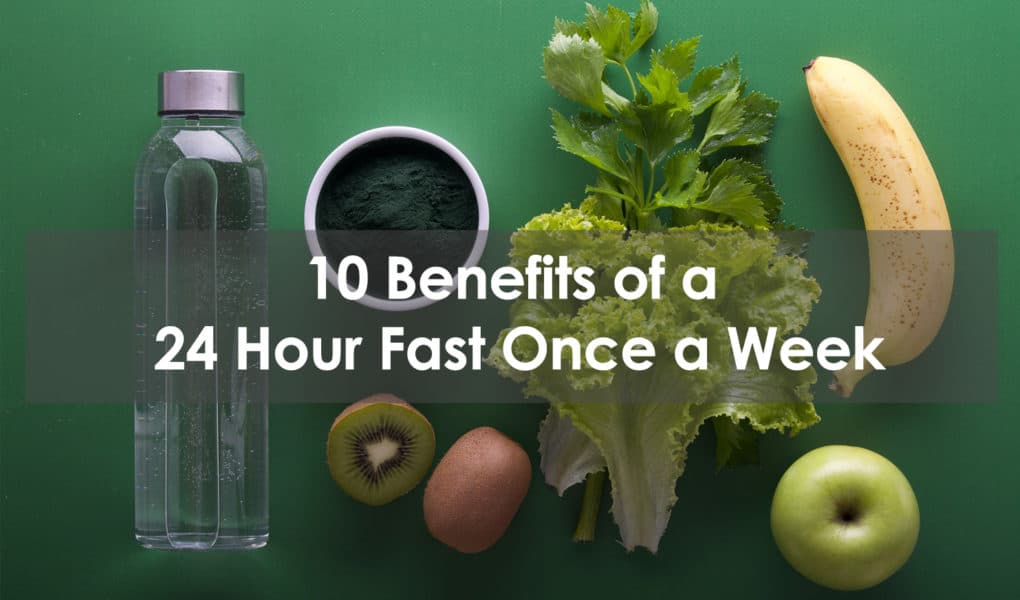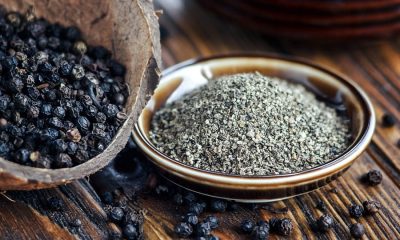Health
10 Benefits of holy basil and side effects

Holy basil, also known as tulsi, is known for its therapeutic power. It has a rich history dating back 3,000 years to the ancient uses of India, historically used as a medicine due to its broad therapeutic power, holy basil leaves are considered by most countries as adaptogens (anti-stress agents) and The benefits of holy basil have been used extensively to promote health throughout the body.
Holy basil is suspected of being native to tropical Asia, although it now grows in many tropical climates around the world.
Today, tulsi or holy basil is commonly consumed in supplement form or as a tea. It is used as a natural remedy for anxiety , adrenal fatigue, hypothyroidism, unbalanced blood sugar, and as a home remedy for acne.
In modern medicine, in recent decades, various Indian scientists and researchers have studied the pharmacological effects of various parts of the plant and the benefits of holy basil on the immune system, reproductive system, central nervous system, cardiovascular system, gastric, urinary system and blood chemistry.
The researchers described the therapeutic importance of holy basil in treating and alleviating various ailments, and established a scientific basis for the plant’s therapeutic uses.
Helps protect organs and tissues against chemical stresses from industrial pollutants and heavy metals and physical stress due to prolonged physical exertion, ischemia, physical restraint, and exposure to cold and excessive noise.
1.- Fight against acne
The benefits of holy basil help kill bacteria and infections, making it a great natural home remedy for acne and other skin irritations. Holy basil is believed to benefit the skin and help treat skin infections both internally and externally.
The main active compound in holy basil oil is eugenol, also the active ingredient in the powerful antimicrobial clove oil , which is believed to help fight many skin disorders.
Holy basil also contains other therapeutic components, including gamma-caryophyllene and methyl-eugenol.
Research published in the International Journal of Cosmetic Science shows that holy basil can be a natural treatment for acne; When used with coconut oil as a carrier, holy basil absorbs into the skin even better and could be even more effective.
2.- Benefits of holy basil for diabetes
The benefits of holy basil appear to include the ability to control blood glucose levels as demonstrated by various experiments in test tubes and animals, as well as in human clinical trials.
A single-blind, randomized, placebo-controlled trial of holy basil leaves points towards the antidiabetic activity of holy basil; In this trial, patients with non-insulin dependent diabetes experienced decreases in fasting blood sugar levels, postprandial blood sugar levels (after a meal), urine blood sugar levels, and mean urine levels. total cholesterol during the holy basil treatment period. Usually,
3.- Benefits of holy basil for cancer
In general, the benefits of holy basil can not only work as a natural treatment for cancer , but it can also serve to prevent it.
Research shows that people who use tulsi regularly are less likely to be immunocompromised and less susceptible to developing cancer cells.
According to published research, tulsi and its phytochemicals (including eugenol, rosmarinic acid, apigenin, myretenal, luteolin, β-sitosterol, and carnosic acid), in some cases, can help prevent liver, chemical-induced lung, oral cancer and of the skin because they increase antioxidant activity, alter healthy gene expressions, induce the death of cancer cells, prevent the growth of blood vessels and contribute to the growth of cancer cells and stop metastasis, which is the spread of cancer from one organ to another .
The sacred benefits of basil also appear to help protect the body from radiation poisoning and help treat damage from radiation treatment. Selectively protects normal tissues against the destructive effects of radiation.
In fact, an interesting review describes the important research involving the ability of holy basil benefits to help fight cancer that we have seen in recent years.
Doctors involved in this research agree that conventional chemotherapy and radiation treatments used over the past three decades have been unable to contain the disease and have serious side effects.
Many natural agents, especially holy basil leaves and extracts from other plants, are found to be non-toxic, easily accessible, and have proven anti-cancer properties.
4.- Balances hormones and reduces stress
The benefits of holy basil include the incredible ability to naturally keep hormone levels balanced ; it has a positive physical effect on the body and mental benefits as well; By drinking tulsi tea or adding tulsi to your meals, you help calm your system and keep your body running smoothly.
According to a scientific article published in 2014 , there is growing evidence that the benefits of holy basil can improve physical, chemical, metabolic and psychological stress.
Some other evidence for this stress-reducing effect includes the ability of holy basil to improve reaction times and error rates in human subjects compared to placebo.
Similarly, holy basil includes three phytochemical compounds that help achieve these results; the first two, ocimumosides A and B, have been identified as anti-stress compounds and can reduce blood corticosterone (another stress hormone) and create positive alterations in the brain’s neurotransmitter system.
The third, 4-allyl-1-O-beta-D-glucopronosyl-2-hydroxybenzene can also reduce stress parameters in laboratory studies.
5.- Relieves fever
Holy basil is often recommended as a natural fever treatment, especially by Ayurvedic medicine practitioners.
Holy basil leaves are believed to act as antibiotic, germicidal, and disinfectant agents, meaning that they can protect us from bacteria and viruses; When we have a fever, it is proof that our bodies are fighting an infection.
Therefore, with its infection-fighting properties, tulsi can help fight fever and restore your health quickly.
6.- Helps to improve respiratory disorders
The benefits of holy basil are found in the components of tulsi leaves, which include camphene, eugenol, and cineole, which help relieve congestion and other symptoms of respiratory disorders.
Scientific studies have confirmed that holy basil possesses impressive anti-asthmatic abilities and can facilitate breathing, making it a commonly recommended herb for respiratory problems in Ayurvedic medicine.
Vitamin K is an essential fat-soluble vitamin that plays an important role in bone health and heart health.
It is one of the main vitamins involved in bone mineralization and blood clotting, but it also helps support brain function, healthy metabolism, and cellular health.
One cup of tulsi leaves has more than your recommended daily value of vitamin K, making it a perfect source to avoid vitamin K deficiency . Additionally, vitamin K can be beneficial for bone density, digestive health, and brain function.
Animal studies published in Alternative Medicine Review also show that many of the benefits of holy basil include cardioprotective properties – in other words, it appears to improve heart health.
8.- Dental care and oral health
Holy basil has the power to fight bacteria in the mouth that lead to dental problems, such as cavities , plaque, tartar, and bad breath. Tulsi leaves serve as a mouth freshener because they kill bacteria and germs that hide in the mouth.
The sacred benefits of basil include helping decrease mouth ulcers, and in vitro studies show that it can stop the growth of oral cancer cells.
For natural dental care, try adding a drop of holy basil essential oil to your toothpaste or drinking a cup of tulsi tea every day.
9.- Benefits of holy basil for headaches
Ayurveda practitioners recommend holy basil as a natural headache remedy that can help relieve migraine pain.
Some believe that this is due to its ability to relieve sinus pressure, and recommend diffusing holy basil essential oil or preparing tulsi tea to reduce headache symptoms.
10.- Supports eye health
Our eyes are susceptible to viral, bacterial, and fungal infections that can be very dangerous.
Fortunately, holy basil benefits include helping fight these damaging infections; It is prescribed in Ayurveda to combat conjunctivitis, also commonly known as pink eye , thanks to its anti-inflammatory and soothing properties.
It can also help prevent a variety of eye problems, including cataracts ; Topical administration of an herbal eye drop blend containing extracts of turmeric and holy basil helps counteract oxidative stress and the formation of insoluble proteins that lead to cataracts
History of holy basil
Holy basil, or tulsi as it is known in the various Indian languages, is an important medicinal plant in many traditional and popular systems of medicine in Southeast Asia; It is a medicinal herb that Hindus consider a sacred plant in the Indian subcontinent.
In traditional systems of medicine, different parts of holy basil or tulsi – the leaves, stem, flower, root, seeds and even the whole plant – have been recommended for the treatment of bronchitis, bronchial asthma, malaria, diarrhea , dysentery, skin diseases, arthritis , painful eye diseases, chronic fever, snake bites and scorpion stings.
In fact, of all the herbs used in Ayurveda, holy basil is preeminent, and scientific research now confirms the benefits of holy basil. As I mentioned earlier, there is growing evidence that this herb can address physical, chemical, metabolic, and psychological stress through a unique combination of pharmacological actions.
Ayurveda is the oldest medical system in the world, it has a holistic approach to health and disease that focuses on preserving and promoting good health and preventing disease through healthy lifestyle practices, including regular consumption of herbs. adaptogens that have the power to enhance the body’s ability to balance in a world with a ton of stressful components.
For this reason, Ayurveda practitioners recommend the regular consumption of tulsi tea as an essential lifestyle practice.
Nutrition Facts of Holy Basil
Holy basil is an aromatic shrub in the basil family (Lamiaceae) that is believed to have originated in north central India and now grows natively in the tropics of the eastern world.
Also known as tulsi, it is a perennial that has a slight lemon scent and purple-pink flowers, the leaves are oval in shape with a slightly tapered tip, and the edges are slightly serrated.
There are two common types of holy basil (tulsi): Rama tulsi has a white stem and green leaves; Shyam tulsi has a deep pinkish purple stem and leaves. Both types are similar in smell and benefits.
A quarter cup of fresh holy basil leaves (six grams) includes the following:
• 1 calorie
• Cholesterol free
• 0.2 grams of sodium
• 0.2 grams of carbohydrates
• 25 micrograms vitamin K (31 percent DV)
• 317 IU vitamin A (6 percent DV)
• .1 milligrams manganese (3 percent DV)
Possible side effects of holy basil
• Researchers have found that holy basil is safe for regular consumption and topical use.
• One note to keep in mind is that holy basil (tulsi) can slow down blood clotting, so taking tulsi along with medications that also decrease clotting can increase the chances of bruising and bleeding.
• Some medications that decrease blood clotting include aspirin, clopidogrel, dalteparin, enoxaparin, heparin, ticlopidine, and warfarin. Due to its influence on blood clotting, you should stop using holy basil two weeks prior to any scheduled surgery.
How to use and cook holy basil
• Holy basil plants are grown in almost every Hindu home. The leaves have a sweet, aromatic smell and a minty flavor; they are used to garnish foods, sauces and soups. They are also commonly used to make juices, flavored water, and tulsi tea; In India, people eat raw tulsi leaves to fight coughs or colds.
• You can buy and care for a holy basil plant, or you can buy tulsi leaves and powder from a health food store. If you buy fresh holy basil, look for leaves that are vibrant and green, without holes or dark spots.
To prepare the tulsi leaves, clean them well and roughly chop them with a kitchen knife, it is best to use fresh tulsi leaves within a day or two, but they can be kept in a sealed bag in the refrigerator for five more days or less.
• Tulsi tea is a popular drink in India that is consumed in place of coffee. You can find tulsi tea in many health food stores; comes in tea bag boxes.
You can also buy dried tulsi leaves in bulk and use a tea ball to make this beneficial and flavorful tea; If you prefer iced tea, it’s easy to let the tea cool, add ice and even a little stevia or lemon for flavor; You can also prepare tulsi juice, which includes five tulsi leaves that have been infused in water.
• Holy basil / tulsi essential oil can be found in many health food stores or online. The essential oil is extracted from the holy basil plant and is used in lotions, soap, perfume, shampoo, and conditioner. You can also spread the oil in your home; the calming and immunostimulating properties can also be inhaled.
• Finally, holy basil is often available in supplement form. It is typically in capsules and is sometimes offered in fermented options, which some sources suggest is easier to digest.
Health
10 shocking health benefits of rosemary tea

Table of Contents
Health
Benefits of fasting for 24 hours

Discover the benefits of fasting for 24 hours.
24-hour intermittent fasting is often recommended for weight loss, but also its many health benefits.
In this article, I detail the benefits of intermittent fasting, and particularly its practice over 24 hours. You will also be able to find my testimonial and my advice for a successful 24-hour intermittent fasting.
24hr Intermittent fasting to live longer in good health!
This sentence comes up constantly when one is interested in the subject. Simple fashion effect or real health interest? That’s the real question.
The objective of this practice is based on calorie restriction and resting the digestive system as a whole.
When we eat too much, binge, and get too much protein, our aging process is accelerated. Our body ages faster. To counter this effect, it is, therefore, necessary to fast. You boost your production of growth hormone, a hormone of youth.
In practice, it remains very complicated. It was Dr. Valter Longo who simplified the practice of intermittent fasting to reap all the health benefits. But in reality, is it effective?
The benefits of 24 hours intermittent fasting
Many scientific studies have highlighted the following health benefits of intermittent fasting:
• Promote weight loss, maintenance, lower bad cholesterol and increase well.
• Reduce cardiovascular and cancer risks.
• Regulate blood sugar by lowering insulin production and increasing fat metabolism.
• Lower the markers of inflammation ( responsible for the aging process ).
• Stimulate growth hormone production ( 2000% during 24-hour intermittent fasting ). This molecule helps you fight to age, tap into your fat and increase your muscle mass.
• Regulate hormonal disturbances after meals.
• Diversify the composition of the intestinal flora.
• Improve the quality of sleep.
It should be noted that these benefits are mainly found in a population that is overweight or obese, sedentary, or suffering from metabolic disease. The effects of intermittent fasting in healthy, physically active, or athletic people seem small to non-existent.
Intermittent fasting and weight loss
According to scientific research, intermittent fasting is effective for weight loss.
The main reason for the effectiveness of intermittent fasting on weight loss is calorie restriction.
Indeed, skipping one or more meals considerably reduces your food consumption. You then find yourself in an energy deficit, and your body has no choice but to draw on the stock of glycogen and fats to continue to function.
Practiced 1 to 2 times a week, over 3 to 24 weeks, intermittent fasting can lead to a weight loss of 3 to 8% of the initial weight, with a non-negligible share of abdominal fat (reduction in the circumference of cut).
However, over the long term, the evidence on the effectiveness of intermittent fasting remains very weak. We don’t know if, as with all low-calorie diets, it leads to a Yoyo effect and significant regain of lost pounds.
To lose weight permanently, mainly fat, while maintaining your muscle mass, it is advisable to combine a slight caloric restriction and the practice of sport regularly.
Need to lose weight permanently?
My Sport to lose weight program has already enabled hundreds of people to lose weight, improve their health and be in better shape! It includes sports sessions in videos, tools to calculate your fat loss, tips for starting running, recipes, and much more… It’s never too late to start the sport and lose weight for your health.
Opinion on the intermittent fasting 24h
So I wanted to get to the bottom of it and test this practice. To simplify things, Dr. Longo has been testing different protocols for several years. Simpler protocols to apply daily while maintaining the benefits. For people with a healthy lifestyle, practicing 24 hours a month is very effective.
So I fasted for 24 hours. The easiest way is to start after dinner. You eat dinner normally, then nothing until dinner the next day. Hydrate well. You can also consume tea, coffee, infusions but without sugar.
I was afraid of being too hungry, of being a wreck unable to move. And not at all. I did my intermittent fast one day back from vacation, in the car. I felt good, without a stroke. What a pleasure to sit down to eat in the evening, even if the goal is to eat normally and no more than usual.
I resumed the sport the next day with a big day ( 3h30 of cycling chained to 1h of jogging ). I felt good, I didn’t have any cravings. I even recovered better. I am full faster on the meals that follow. The results are very positive.
However, here are some tips to guide you:
• No sport on the day of intermittent fasting, or a short cardio session (30 minutes).
• Take care. Get out of your house, otherwise, the day will be too long to manage unless you have plenty of tasks to accomplish.
• Don’t throw yourself on the food when you eat again. Don’t say to yourself: “it’s good, I’ve done the hardest I can let go”.
• Remember to drink well ( 1.5 to 2 liters of water ) and take hot drinks for satiety.
Be careful if you have medical treatment, do not do it. I do not know the actions of this practice under these conditions. A drug does not have the same effect in these conditions, so check with your doctor.
I await your reactions after your tests. Intermittent fasting is increasingly practiced in the United States, to fight against junk food and diseases of civilization. Its health benefits are undeniable. Live old and above all live better!
Health
Benefits of hibiscus tea for skin

Table of Contents
- Benefits of hibiscus tea for skin
- Greater elasticity in the skin
- Prevents and fights cell damage
- Hydrates in depth
- Unifies skin tone
- Discover the benefits of hibiscus tea for skin.In today’s post we want to offer you a wonderful option to enhance your health and even take care of your beauty with a gift from nature whose qualities have been known for thousands of years.
We want to talk about the Hibiscus tea, a plant native to China and Japan, also known as China rose, whose extract has a wide range of properties, among which are antiseptic, digestive, diuretic, and others that we will detail below.
Its cosmetic properties are so amazing that it has been called “vegetable Botox”, rich in antioxidants and vitamin C.
Its effects after constant consumption in the form of an infusion, for example, have been compared to the effects of Botox injections, since its tightening effect helps to hide expression lines and sagging of the face.
Its active components act at the cellular level, nourishing and moisturizing the dermis, creating a wonderful anti-aging effect.
There are 5 different varieties of Hibiscus in the world: Hibiscus Rosa Sinensis, the best known in Spain, Hibiscus esculentus, Hibiscus sabdariffa, and Hibiscus tiliaceous.
Its flower is edible and its different forms of presentation, in powder, in preparation for infusion, or syrup, allow us to take it comfortably and prepare masks that will surely become great allies for your skin and hair.
In India, hibiscus has traditionally been used to treat hair problems, reduce dandruff, moisturize the scalp while nourishing and strengthening it, and even prevent the appearance of gray hair.
Benefits of hibiscus tea for skin
Greater elasticity in the skin
As we have previously mentioned, the Hibiscus tea will provide us with its tensor effect, greater elasticity, and firmness in the skin, keeping it looking young for longer.
Prevents and fights cell damage
Hibiscus tea fights free radicals that cause oxidation that starts the aging process in the skin, the largest and heaviest organ in the body.
Hydrates in depth
After using the usual cleansers we remove the moisture and natural agents that protect our skin, if we regularly use hibiscus masks we will ensure that our facial skin is sufficiently hydrated avoiding dryness and its unwanted consequences.
Unifies skin tone
Hibiscus is known for its exfoliating and anti-blemish action and its beneficial effects in cases of hyperpigmentation, unifying the tone and softening the features.
For all these benefits, the Hibiscus tea is considered a natural and effective anti-aging recipe, do not forget to try it.
Related Searches…
Hibiscus tea for skin whitening
Hibiscus tea benefits hair
How to make hibiscus tea
Benefits of hibiscus for lips
Hibiscus for skin tightening
How to use hibiscus for acne
Benefits of hibiscus oil for skin
Hibiscus flower benefits for hair and skin
Hibiscus tea effect on kidneys
Hibiscus powder benefits
Homemade hibiscus face cream
Hibiscus soap benefits for skin
-

 Food1 year ago
Food1 year ago10 + Benefits of carrot juice and side effects
-

 Benefits4 months ago
Benefits4 months agoThe Benefits of Joining Gym Lumolog – Improve Your Fitness & Health
-

 Health1 year ago
Health1 year ago50 Super Healthy (And Very Often Cheap) Foods
-

 Health1 year ago
Health1 year ago5 Shocking health benefits of kinkeliba and side effects
-

 Food1 year ago
Food1 year ago8 shocking benefits of leek juice and side effects
-

 Health1 year ago
Health1 year agoBenefits of guava leaves Sensually
-

 Weight Loss1 year ago
Weight Loss1 year agoChaz Bono weight loss secret
-

 Health1 year ago
Health1 year ago15 Benefits of lipton tea and side effects












